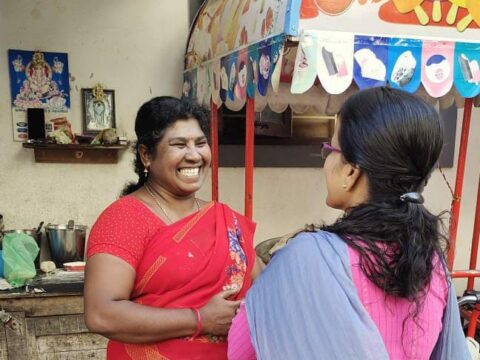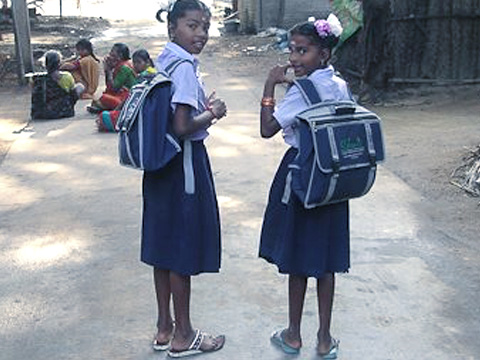-penned by Alo, board member
Poverty is variously described as deprivation, pauperism, penury and subliminally we all wish if only a touch of magic could change the lot of the poor. If only the rich gave to the poor. What on earth does one do with amassed wealth! If only society were more equitable. Yet one of the most destructive modes practiced by agents and NGOs whose bleeding hearts yearn for a better lot of the poor is giving. Why blame agencies, even the common man on the street validates mendicity by giving to a beggar. Giving makes the giver feel good; giving is most often destructive for those in need. Giving entrenches the habit of asking. Normalises expectation, validates dole and perpetuates poverty. This model of intervention is not the philosophy of Sharana. If we give we also welcome a payback and sometimes the giving is accompanied by a structured mechanism of payback. Sometimes even as we give we envisage an exit policy of the programme when the beneficiaries meet certain criteria of independence. It is within this model of intervention that Sharana’s Women’s Entrepreneurship Programme was envisaged.
In July 2018 women meeting predetermined criteria were shortlisted by our social workers among the beneficiaries of all our programmes. The aim was to provide them a loan based on a business pan they envisaged that suited the requirements of their areas or their competence. One of the most important safeguards was to ensure to the extent possible that this loan was not going to be used as part financing for any plan that they had that would require them to take additional loans from local money lenders usually at untenable rates of interest.
Kavitha(name changed) was a volley ball player, but her father prevented her from perusing her passion. She dropped out of school at 15 and worked in an office of a group of Band musicians who performed at wedding etc. At 18 she fell in love with and married one of the players. For eight years she wasn’t allowed to work. Meanwhile she had two daughters and was forced into a third pregnancy that resulted in the much coveted boy child. For eight years she struggled to run the house with the pittance her husband gave her after he had frittered away most of his earnings on alcohol. When her situation became untenable she started to work on a fruit cart that was operated by a relative. She quickly picked up the skill set for the job but her relation refused to remunerate her fairly. In fact her wages per hour decreased with time as her working hours stretched to 12 hour shifts. She quit the job and worked as a house maid for some time. Logistics was complicated as she had to leave home early in the morning and work while her older children looked after her infant son. The children left for school on her return. The two older girls as well as her son avail of the Saturday drop in centre facilities at the street and slum children centre. Income from the house maid’s job too plateaued and she was barely able to provide one meal a day to her family.
When Sharana was going to launch the Women’s Entrepreneurship Programme in the form of a loan for viable business proposals, Kavitha was a natural candidate. Despite her situation she was an engaged and active participant in the Parent Teacher Association of the School, always positive about improving her condition in society. With the loan she opened her own fruit cart and very quickly she met with economic and material success. Her work ethic is impeccable, she’s regular, punctual, neat and clean, she makes her payments on time and wholesalers are very happy to deal with her. In 6 months since her cart is operational she has tripled her monthly income. From barely managing a meal a day for her family today she cooks them three meals and includes meats and poultry. She beams with pride when she tells me she took her husband and children to the Mall one evening and they watched a movie and ate out and she spent in an evening almost her monthly income as a house maid. Her empowerment is palpable. Her energy and enthusiasm infectious, her dream is to move in to her own house eventually.
This makes for a satisfying case story of a positive intervention, but at Sharana we work towards holistic empowerments. While her husband has stopped alcohol consumption due to medical reasons and has now a steady job in addition to playing in the band and actively participates is raising his children with Kavitha, there still are instances of physical abuse and control he cannot give up . Kavitha cannot yet operate her own bank account; he has confiscated her Sim card and is suspicious of her interaction with wholesalers and customers. These are areas of non material though capital factors of empowerment our social workers are engaged with for the moment. It may take time but we are confident Kavitha will soon not only control the material destiny of her family but will eventually gain the respect and control she deserves in the eyes of her husband and society.
-Sharana has changed the name of the Women in the above account as well as omitted some personal details to protect the identity of the family.












